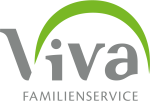Tips for a successful start to primary school
While the summer holidays have just started in some federal states, they are already coming to an end in others. The new school year begins and a new generation of first graders starts school. For every child, the transition to primary school is an important milestone. But it also comes with uncertainties and questions – for parents and children. We will give you tips on how to best accompany your child during the transition from kindergarten to school.
What skills do children need when they start school?
The most important information first: your child does not need to know how to write, read or do arithmetic. This is what children learn in primary school. If your child is interested in letters or numbers, then of course you should follow this interest and not stop them.
But what are the skills that are needed?
- Personal competence: Your child should be able to give information about himself (name, family members, place of residence…), have a certain degree of independence (dressing and undressing alone, going to the toilet, keeping order, …), speak his mind clearly, name his feelings, value himself, have a certain frustration tolerance and be able to accept criticism.
- Social competence: This includes the ability to communicate (getting involved with new people, making friends with peers and general manners), the ability to cooperate (playing in groups, learning consideration and sharing) and the ability to deal with conflict (making compromises, solving minor disputes themselves and asking for help in major disputes).
- Motor skills: Gross motor skills include movements of the whole body, such as jumping and running, walking stairs, balancing and climbing. Fine motor skills include holding a pencil, using scissors and glue as well as tying shoes.
- Language skills: Your child should speak in complete sentences and have a rich vocabulary. Short stories should be able to be reproduced in short sentences. Instructions from other people should also be understood.
- Mathematical competence: Counting to ten and having an understanding of numbers (I came third, today is August 3rd, that’s three euros, …), being able to recognise quantities up to six simultaneously without having to recount, being able to reproduce figures and patterns, knowing colours and being able to distinguish between them.
- Play and work behaviour: Your child should already have some stamina and the ability to concentrate (of course, it’s not about 45 minutes at a stretch, but about finishing a game, colouring a picture in peace, basically sitting quietly for a while and also listening). Willingness to make an effort – Your child should know that you have to make an effort for things. You can’t do everything “automatically” and not all obstacles are always removed.
What can I do as a parent to support my child?
At first glance, the list of skills your child needs looks very long and extensive. The good news is that most skills are trained in everyday family and kindergarten life.
Two areas where a lot of skills are trained are cooking and baking, as well as playing board games. When cooking and baking together, motor skills are promoted, instructions are followed, set theory is included (e.g. with quantities) and concentration is also trained. Maybe they also practice how to deal with mistakes – one time it doesn’t taste so good, the next time it tastes better? What happens if too much milk ends up in the cake batter? Can it perhaps still be corrected? Board games also train many skills: frustration tolerance is encouraged (wanting to win and being able to lose), the ability to cooperate is strengthened (especially when playing in teams), set theory is included (e.g. in dice games), the ability to concentrate is trained and, depending on the game, also the willingness to make an effort.
Many teachers complain that first graders often lack two skills: independence and frustration tolerance. At school, it is quite normal for pupils to complete their tasks independently and to remember the teacher’s announcements and pass them on to their parents. The children are responsible for the teaching materials from now on, the school bag and the gym bag. This can be practised in advance in a very uncomplicated way: Your children can take over small household tasks. And when shopping, you can tell your child three things that he or she should collect and put in the shopping trolley. Dressing and undressing should be practised in any case and work smoothly, just like going to the toilet (including washing your hands afterwards!).
Even if it is painful for us parents: our children should fail. Over and over again. And then… they will make it someday! Because they learn from it that they can master difficult situations and challenges! If they carry the knowledge “I can do this – I’ve already done other things!”, they are no longer afraid of making mistakes or failing at school.
You can give your children the right mindset even before they start school:
- Mistakes are helpers! Something is learned from every mistake – making mistakes is not bad! Rather, mistakes can be an opportunity to try something new and develop further.
- The Growth Mindset: “I can’t do it yet!”. This is the belief that you can always develop your skills. That you learn in order to understand things better and experience more.
All children want to learn and are fundamentally inquisitive. This must be maintained and encouraged. Suppressing inquisitiveness can actually be damaging and demotivating for the future. There has never been a child who had too much general knowledge: whether reading aloud, listening to audio books or podcasts, tiptoi books or informative TV programs. If your children have an interest in a topic, let them become an expert – if they want to.
Does your child already have an interest in letters, writing and reading? This interest can also be served for. There are wonderful preschool exercise books that can be worked on together. First letters are learned, words are divided into syllables, rhymes are recognised, sounds are heard, mistakes are searched for…
Tip: When writing, use upper and lower case letters from the beginning – for example, many children write their first name in capital letters for years. And learn the letters directly as sounds – so “D” is not “dee”, but “dddd”. That helps enormously in primary school.
What should not be neglected: free play – ideally in the great outdoors. This is how your child discovers the world and learns self-efficacy, among other things. Few experiences are anchored in the brain as sustainably as one’s own, lived experiences.
Preparing the new everyday life together:
From a pre-school child in kindergarten to a first-grader in school is a very big step. Transitions are very often associated with strong emotions – joy, fears, worries, insecurities, … It is important to talk about these feelings and to show your child that it is absolutely okay to feel this way!
To reduce insecurities and fears and to strengthen anticipation, we recommend preparing the new daily routine together with your child:
- Picking out the school bag! One of the highlights for preschool children. Many parents put the school bag away until the start of school, but it can be useful for their child to familiarise themselves with the school bag at home.
- The school supplies (according to the school’s list) can also be bought together. At home, the gym bag and the school bag are then filled with them together.
- Walk to school together. The more often the way to school is practised, the safer your child will feel. Of course, it is especially important to discuss the traffic rules in detail (crossing the traffic light only when it is green, waiting at the zebra crossing until the car has stopped, discussing dangerous places such as large intersections, …). Do other schoolchildren live in the neighbourhood? Maybe there are already running groups or you could initiate this?
- Visit the school in advance: What does the playground look like? Where is the sports hall and where are the classrooms? The fewer unknowns there are, the safer your child will feel.
- Set up a workplace at home: Your child also needs a workplace at home where he or she can do homework and study in peace and quiet in the medium term. Of course, your child can do homework at the kitchen or dining table for the time being. In the medium term, however, it makes sense to have a workplace that is quiet and where your child can work undisturbed. Desk and desk chair should be ergonomically suitable – it is best to test the furniture with your child in advance. On or next to the desk, you can develop an organisational system together: perhaps a small filing system, a shelf for worksheets and notebooks, standing files, pencil holders… The main thing is that there is enough space for all the upcoming teaching materials.
We wish you and your child a wonderful start to school and a great school time! If you have any questions, please do not hesitate to contact us.













